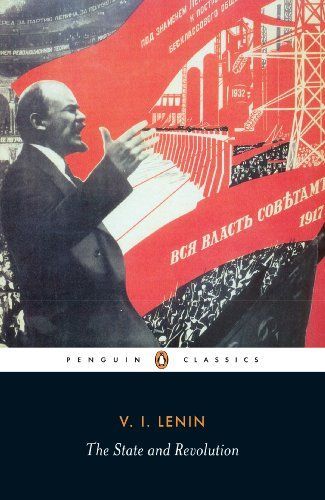
The State and Revolution
In July 1917, when the Provisional Government issued a warrant for his arrest, Lenin fled from Petrograd; later that year, the October Revolution swept him to supreme power. In the short intervening period he spent in Finland, he wrote his impassioned, never-completed masterwork The State and Revolution. This powerfully argued book offers both the rationale for the new regime and a wealth of insights into Leninist politics. It was here that Lenin justified his personal interpretation of Marxism, savaged his opponents and set out his trenchant views on class conflict, the lessons of earlier revolutions, the dismantling of the bourgeois state and the replacement of capitalism by the dictatorship of the proletariat. As both historical document and political statement, its importance can hardly be exaggerated. Translated and edited with an introduction by Robert Service
Reviews
pk@hiraicel
elif sinem@prism
arvid @arviden
Yorick @yoricl
Melih @melhiron
Atticus Cameron@atticspaced
Aldrake @hamborger
lav@lavignebrat
sky na@otterwott
Najmi Indot@najmiindot
Mher Alaverdyan@mhermher
Damon Jablons @damo
Clare Robnett@clarebear325
winter ☆ @bjorkeatz
Sergio Varela@ingrownmink4
Muhammed Tarek@muotarek
Ahmed Bakr@abakr92
Izzy@izzystardust
cyn@bookbear
KKK@kandid
Sheila Macias @shyjems
Ella@ellathebug
Laura Carnevale@laura_c
Ezra Alie@ezraa
Highlights
nhu ⋆𐙚₊˚⊹@nhuelle
Page 95
nhu ⋆𐙚₊˚⊹@nhuelle
Page 87
nhu ⋆𐙚₊˚⊹@nhuelle
Page 87
nhu ⋆𐙚₊˚⊹@nhuelle
Page 86
nhu ⋆𐙚₊˚⊹@nhuelle
Page 81
nhu ⋆𐙚₊˚⊹@nhuelle
Page 80
nhu ⋆𐙚₊˚⊹@nhuelle
Page 48
nhu ⋆𐙚₊˚⊹@nhuelle
Page 47
nhu ⋆𐙚₊˚⊹@nhuelle
Page 7